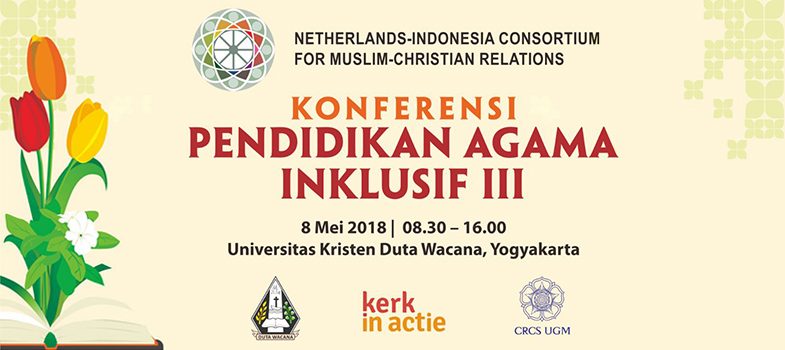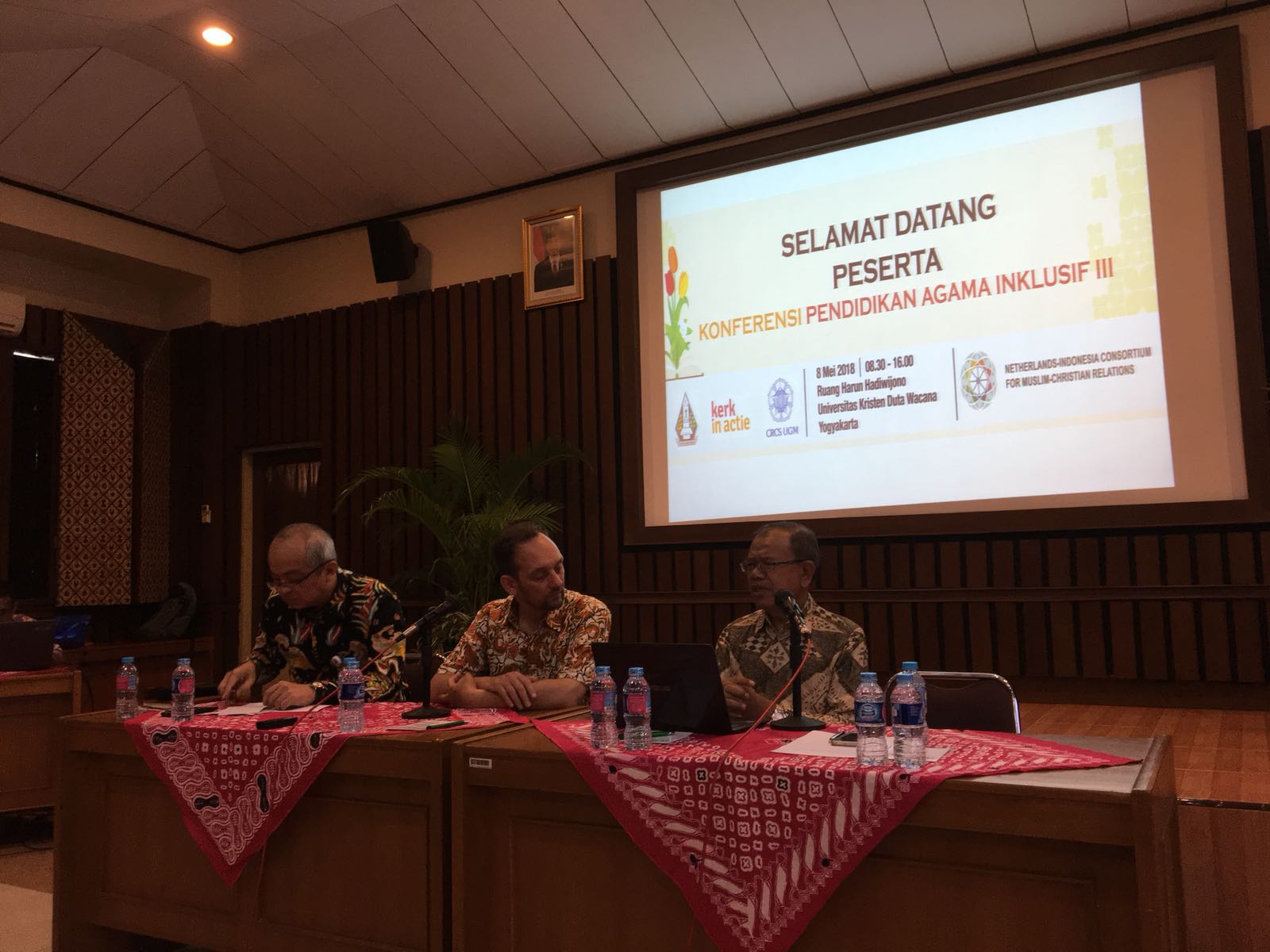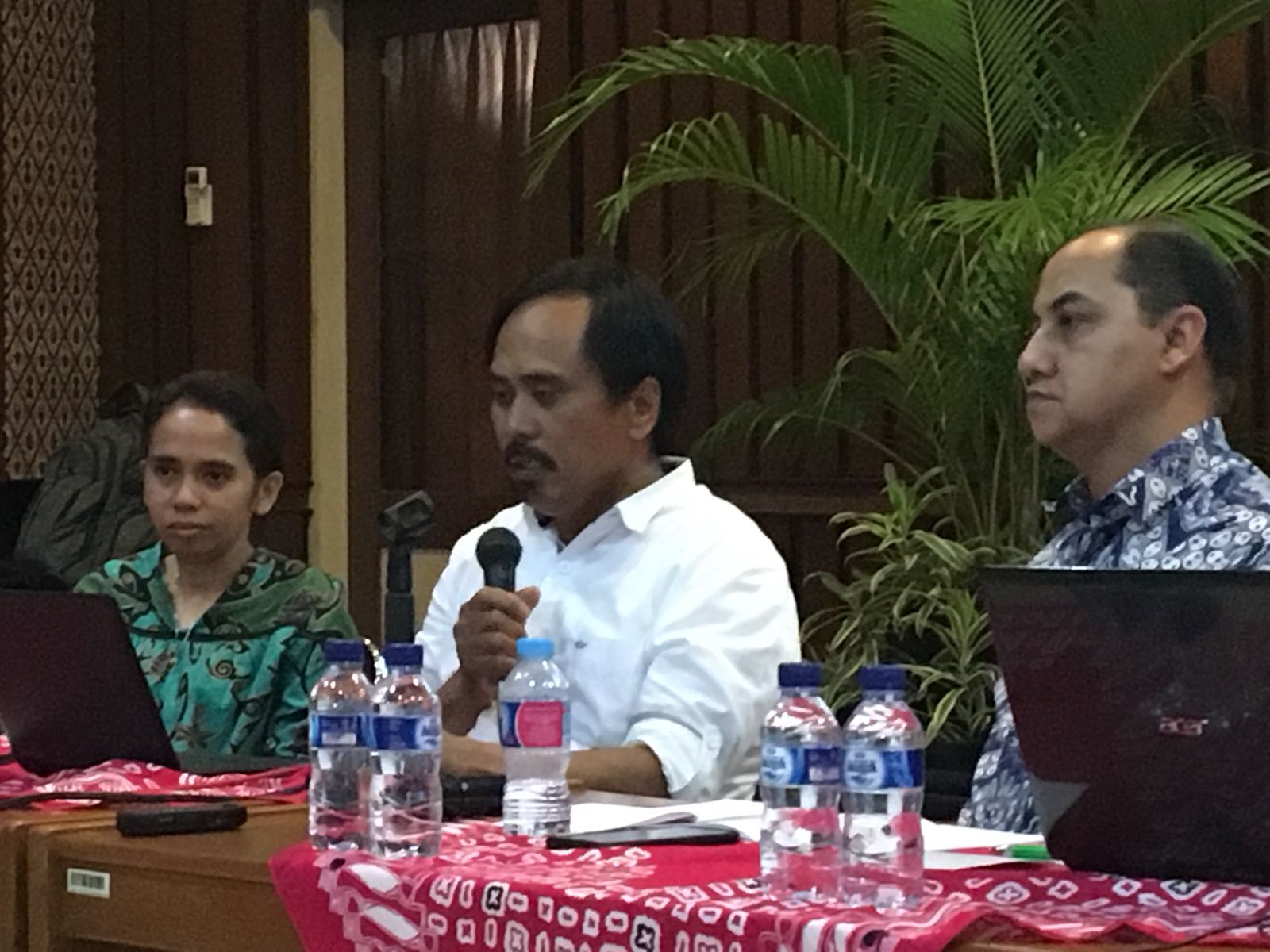Inclusive Religious Education: Religious Literacy in Contexts
by June Beckx
Scholars and practitioners gathered together in Yogyakarta to discuss Inclusive Religious Education and the need for religious literacy in The Netherlands and Indonesia. It was the 3rd Conference held on the topic and organized by NICMCR on May 8, 2018 at the Universitas Kristen Duta Wacana.
The Inclusive Religious Education Project started from an observation that both Indonesia and the Netherlands are experiencing tensions related to religious pluralism. A key element in this regard is religious education, both in public schools and in schools and educational institutions, organized from or within the various religious communities. The aim of this project is to describe and discuss best practices in religious education, directed towards inclusive pluralism and social sustainability. The next step will be to promote and enhance inclusive religious education in both countries. The 1st conference was organized in Ambon in 2016, organized by UKIM and IAIN Ambon. The 2nd Expert Meeting in November 2017 at the Vrije Universiteit, Amsterdam, discussed proposals of 18 papers that will be published in 2018. This 3rd Conference featured researchers who have recently conducted research on religious education and case studies of interreligious encounter and reconciliation in different parts in Indonesia.
The question, posed in the first session, how relevant the digital development is for Inclusive Religious education in the complexity of a volatile, uncertain and ambiguous society, is not easily answered. Although we are living in a plural context, in which we are more and more interconnected, we live more and more on our own islands, with our own truth. We tend to have simplistic answers, with easy black-white views on religion. Through internet there is easy access to information, but it also contains false information, sometimes even delivered by religious leaders. With the increase of social media, religious hoax is spread through media and campaigns. In the midst of this, the role of the teacher should change, it is not a matter of knowing everything, but more to induct students to find a good way to find answers in their own way. Theologians need to develop critical ways of thinking. We have to struggle with religion in search for the difficult answers.
With reference to the alarming results of preceding research on extremism in schools in Indonesia, in the second session of the conference, researchers pointed out that the danger for Islamism ideologies and the transnational Muslim groups are in fact not as alarming as we are made to believe. In a research in 6 schools in Yogya, for instance, intolerant teachings were not found, the schools were relatively moderate although education methods are still conventional where the concept of tolerance has no priority yet. Schools and universities in general are resistant to Islamist penetration, although this differs from town to town. However, we cannot negate that there is reason for alarm, because of the influence of certain forces who are a threat to the plural society.
Elaborating on the question if youth nowadays read more moderate or more extremist thoughts, in one research their attraction to more popular religious ideologies which are read easily, came to the fore. But this is not necessarily a threatening phenomenon, since the young people actually do not have the tendency to compartmentalize, so they read moderate as well as extremists books. To counter the spreading of ideologically dangerous literature, the government should support publication of moderate, mainstream books, including works of progressive writers from all over the world. These works should be packed in a popular and trendy way which speaks to the imagination of the young.
In the third session, case studies showed different examples in Ambon and Jakarta of interreligious encounter and reconciliation through schools. In Poso, where the conflicts seem to be triggered by political and corporate interests related to natural resources in the region, unity is aimed through the teachings of harmony, a collaborative endeavor of among others, Christian and Muslim Institutes. With the traditional principle Bingka Lora about respect, recognition and equality, activists try to prevent a next generation to live on violence.
Another interesting case was inclusive education through ecological education at the Pesantren Ath-Thariq in Garut, where concern for the ecosystem can lead to pluralism: respecting the environment means respecting humanity, with various identities and religions praying and working together to take care of the Earth. Teaching ecology has double significance and positive effects: awareness about ecology leads to awareness of humanity.
Asyer Tandapai Fahurrazi Ibnu-Burdah Otto Adi Yulianto Rachel Iwamony Suhadi Yayasan Cahaya Guru3rd Conference on Inclusive Religious Education, May 8, 2018, at the Universitas Kristen Duta Wacana, Yogyakarta
Speakers: Muhammad Machasin, Ruard Ganzevoort, Suhadi, Otto Adi Yulianto, Ibnu Burdah, Rachel Iwamony and Nancy Souisa, Asyer Tandapai, Sicilia Leiwakabessy, Fahrurrazi
Moderators: Henry Feriadi, Tabita Kartika Christiani, Zainal Abidin Bagir
Opening: Corrie van der Ven
Wrap up: Zainal Abidin Bagir, Corrie van der Ven
Closing: Robert Setio


